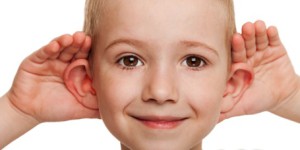 National estimates of the number of school-aged boys and girls who contend with auditory processing disorder (ADP) hover a high as 5%. Children who suffer from this condition are working hard to engage in traditional learning processes, but struggle with what essentially amounts to neurological wiring issue in the brain. This creates serious trouble with both speech and language. The mind and the ears do not properly communicate, resulting in words that are misheard or misunderstood frequently. To be clear, the issue is not hearing – people afflicted with this condition understand things in quiet room without issue. However, when background noise is to some extent present (as it almost always is), the brain is unable to single out the appropriate stimuli and thus misunderstands what the ears hear.
National estimates of the number of school-aged boys and girls who contend with auditory processing disorder (ADP) hover a high as 5%. Children who suffer from this condition are working hard to engage in traditional learning processes, but struggle with what essentially amounts to neurological wiring issue in the brain. This creates serious trouble with both speech and language. The mind and the ears do not properly communicate, resulting in words that are misheard or misunderstood frequently. To be clear, the issue is not hearing – people afflicted with this condition understand things in quiet room without issue. However, when background noise is to some extent present (as it almost always is), the brain is unable to single out the appropriate stimuli and thus misunderstands what the ears hear.
The scientific community has yet to reach a consensus in terms of the conditions or events that might cause ADP. Head trauma, chemical exposure, and/or chronic ear infections might all play a part in its development. There is also a theory that the disorder is hereditary.
The small but crucial difference between an inability to hear and an inability to effectively listen makes auditory processing disorder particularly tricky to recognize. These kids have ears that seem to work just fine, but are incapable of effectively or efficiently processing the incoming auditory information. As a result, it is not uncommon for ADP to be misdiagnosed as ADHD. However, although it is possible to have both ADHD and ADP, ADP is a learning disability entirely on its own sort of attention to remedy. Children who have ADP are easily startled by loud noises, experience significantly more difficulty concentrating on tasks when in a noisier environment, and have trouble following what might seem to be an otherwise simple and straightforward conversation. They also may find reading and writing challenging in social situations.
For a long time, the most widespread course of treatment involved visiting an audiologist or speech pathologist to work on improving language and listening skills. However, neuro-cognitive training has since supplanted these older methods and become widely lauded as the most effective way to address the challenges inherent to living with ADP. Neuro-cognitive training instructs the mind in terms of how to focus and interpret auditory information in both regular and problematically loud situations. It also helps reform the mind’s ability to pay attention and process auditory input the second it enters the ear, then is sorted, and then made available for retrieval. To learn more about neuro-cognitive training programs, like those innovated by ACE Clinics, can help you or a loved one with ADP improve their lives, visit http://ACEClinics.com.